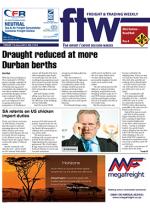Unpacking the consignee/
consignor legislation
aimed at addressing the
overloading of vehicles
is proving to be far more
difficult than envisioned
and is in fact causing more
confusion and uncertainty
than anything else.
According to Prof Hugo
Pienaar, a director in the
employment practice of
Cliffe Dekker Hofmeyr, the
legislation is problematic
on several levels, starting
with the definitions of
consignee and consignor.
Whilst some have called
on government to relook
at the legislation and find
ways of making it more
understandable, this may
not be so easy to do.
“It is very complicated,
with so many implications
– not to mention the
confusion that it is
creating. There is
uncertainty over whose
interests are being served
and industry is asking
government to review it
and fix it.”
But, he said, there was
uncertainty over how
possible this was. “It may
very well be easier to ask
government to withdraw it
completely as it is going to
be exceptionally difficult to
fix – if at all.”
It is a sentiment echoed
by several experts, including
Kevin van der Merwe,
who handles abnormal
load support for the Road
Freight Association. “The
legislation is seriously
flawed,” he said at
the recent anual RFA
conference in KwaZulu-
Natal. “There is a very real
fear that despite this sooner
or later some company
director is going to be made
an example of through this
legislation.”
Through the amended
National Road Traffic
Regulations Act, those
transporting goods are now
required to be in possession
of a written declaration
containing the nature of the
goods being transported,
the particulars of every
consignor and consignee
and compulsory insurance
on the goods.
INSERT
It may very well
be easier to ask
government to
withdraw it completely
as it is going to be
exceptionally difficult
to fix.
– Prof Hugo Pienaar

